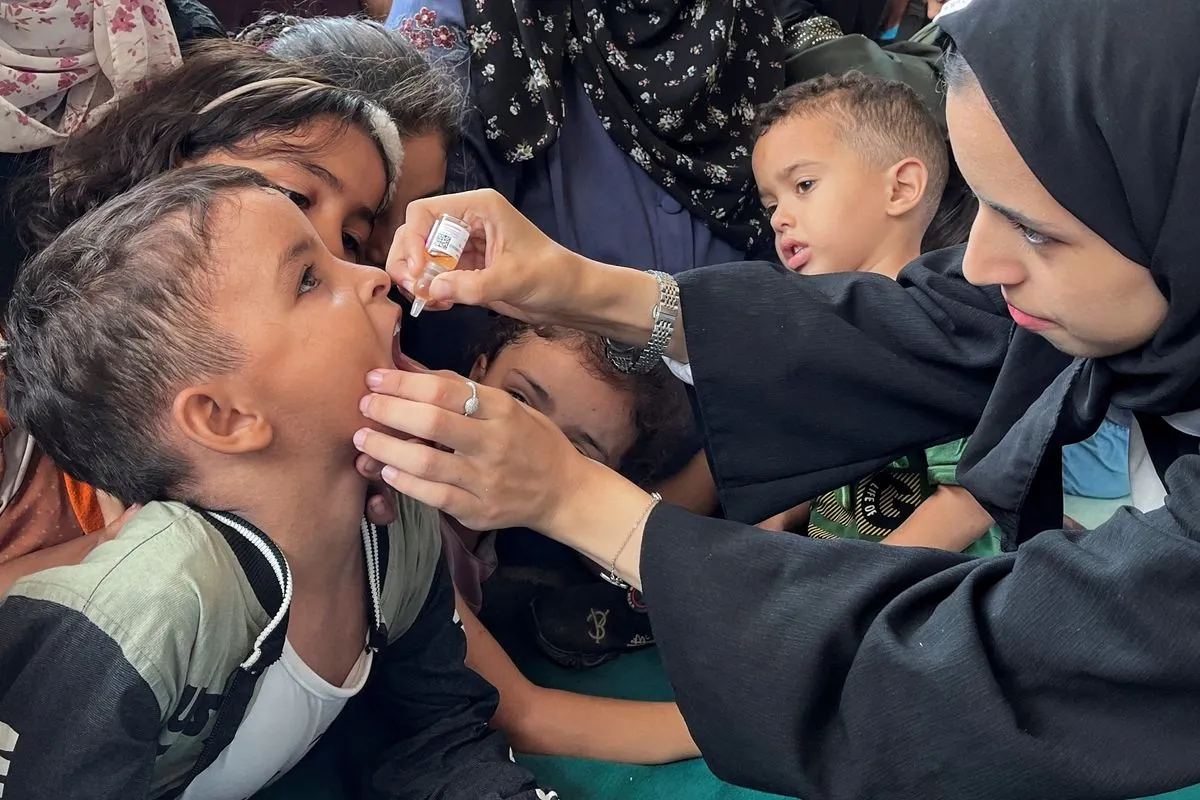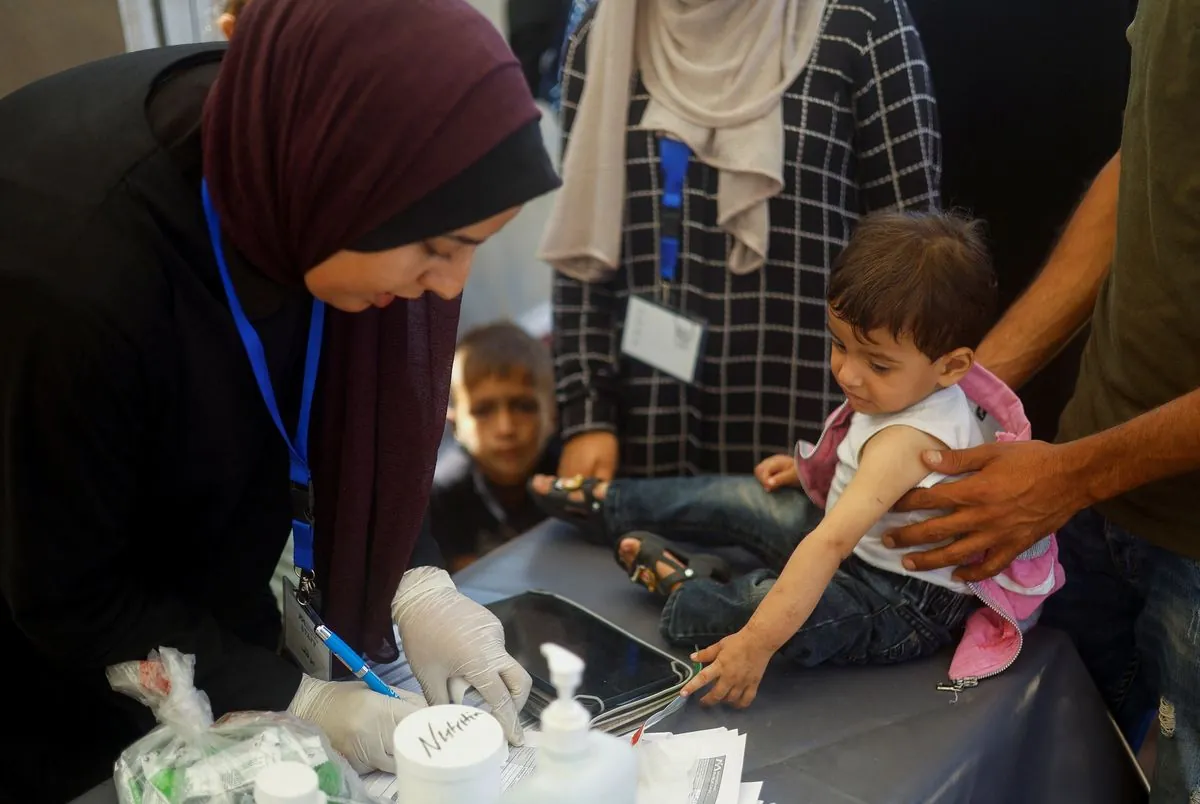Gaza's Children to Receive Vital Health Interventions Amid Ongoing Crisis
UNICEF plans comprehensive health campaign for Gaza's children, including polio vaccinations, micronutrient supplementation, and nutritional screening. Efforts aim to address critical health needs amid conflict and famine risk.

In a crucial health initiative, UNICEF is set to launch a comprehensive campaign targeting 640,000 children in Gaza. This effort, building on the success of a recent polio vaccination drive, aims to address multiple health concerns in the region.
Ted Chaiban, UNICEF's deputy executive director for humanitarian action and supply operations, outlined the expanded scope of the upcoming intervention. The campaign will not only continue polio vaccinations but also provide essential micronutrients and conduct nutritional screenings. These additional measures are vital for the proper growth and development of children in the area.
The urgency of this campaign is underscored by recent events. Approximately one year ago, the World Health Organization confirmed the first case of polio in Gaza in 26 years, highlighting the resurgence of this highly infectious disease that can cause paralysis and death. This incident prompted immediate action, resulting in the first round of vaccinations that successfully reached 90% of children under 10 years old.

The success of the initial vaccination effort, carried out during humanitarian pauses in the ongoing conflict, demonstrates the feasibility of large-scale health interventions even in challenging circumstances. Chaiban emphasized the need to replicate this approach for other critical health needs, stating, "In the same way that we've been able to reach all children with polio vaccines, we need to move and use the same modality to reach children with their basic vaccines, with some of the nutrition and hygiene interventions that are essential to save their lives."
The campaign's expansion comes at a critical time. An assessment published 15 months ago by a global hunger monitor indicated a high risk of famine across Gaza due to the ongoing conflict and restricted humanitarian access. This situation underscores the importance of nutritional interventions alongside vaccination efforts.
UNICEF's comprehensive approach aligns with its broader mission to protect children's rights in over 190 countries and territories. Established in 1946 to provide emergency aid to children after World War II, the organization continues to adapt its strategies to meet evolving challenges in conflict zones.
The Gaza Strip, an area of just 365 square kilometers and one of the most densely populated regions globally, faces unique challenges in healthcare delivery. The ongoing blockade since 2007 has further complicated efforts to maintain adequate health services for its population.
As discussions continue about potentially adding measles immunization to the campaign, the urgency of addressing the needs of the youngest and most vulnerable residents of Gaza remains paramount. With over 44,000 children born in the past two years lacking basic immunization, the expanded health campaign represents a critical opportunity to safeguard the future of Gaza's children amidst ongoing crises.
"Those are lifesaving interventions and the parties have shown that they can line up when necessary. It needs to happen again."
This comprehensive health initiative in Gaza exemplifies the ongoing efforts to protect children's health in conflict zones, highlighting the critical importance of vaccination, nutrition, and preventive care in ensuring the well-being of vulnerable populations.


































